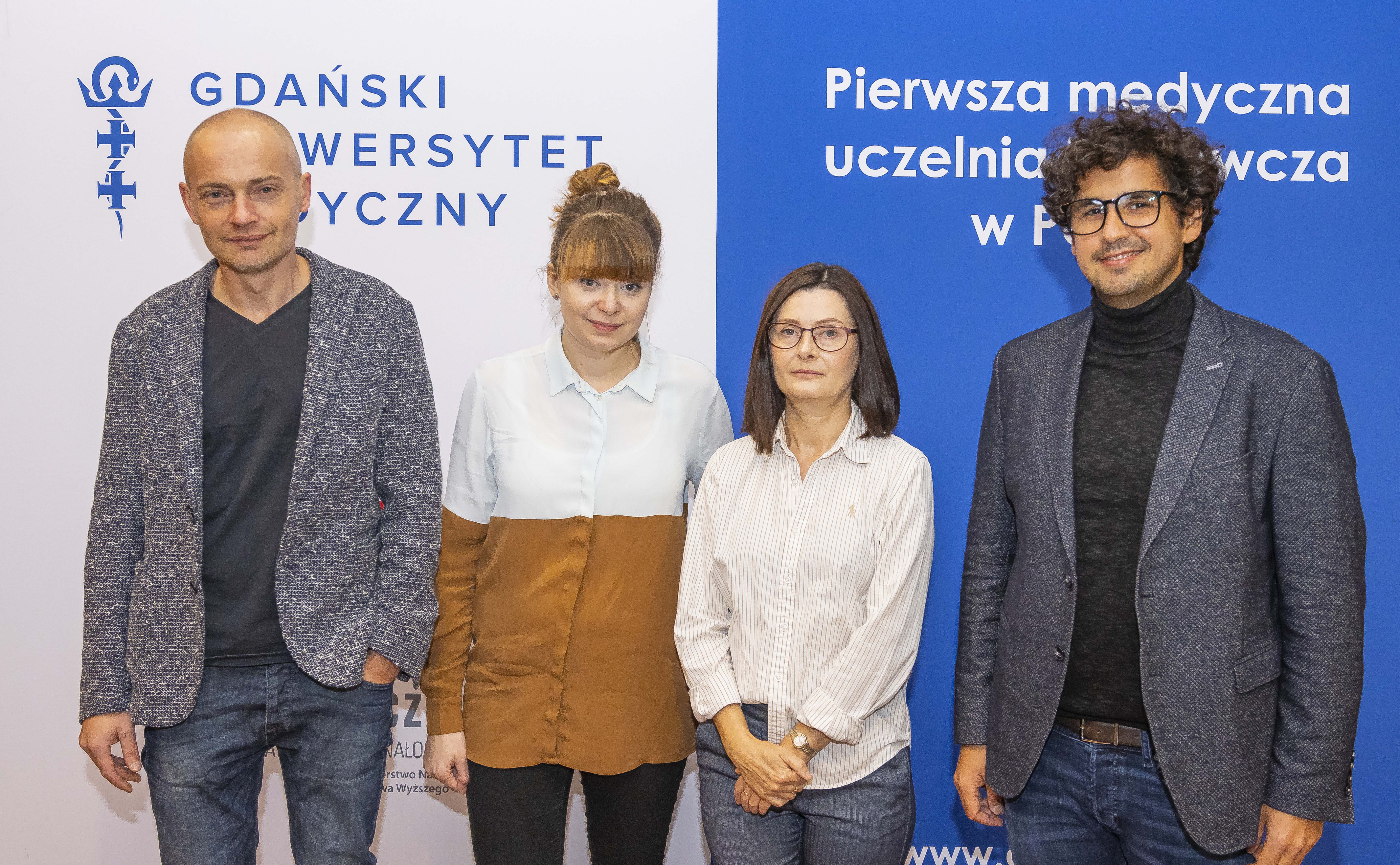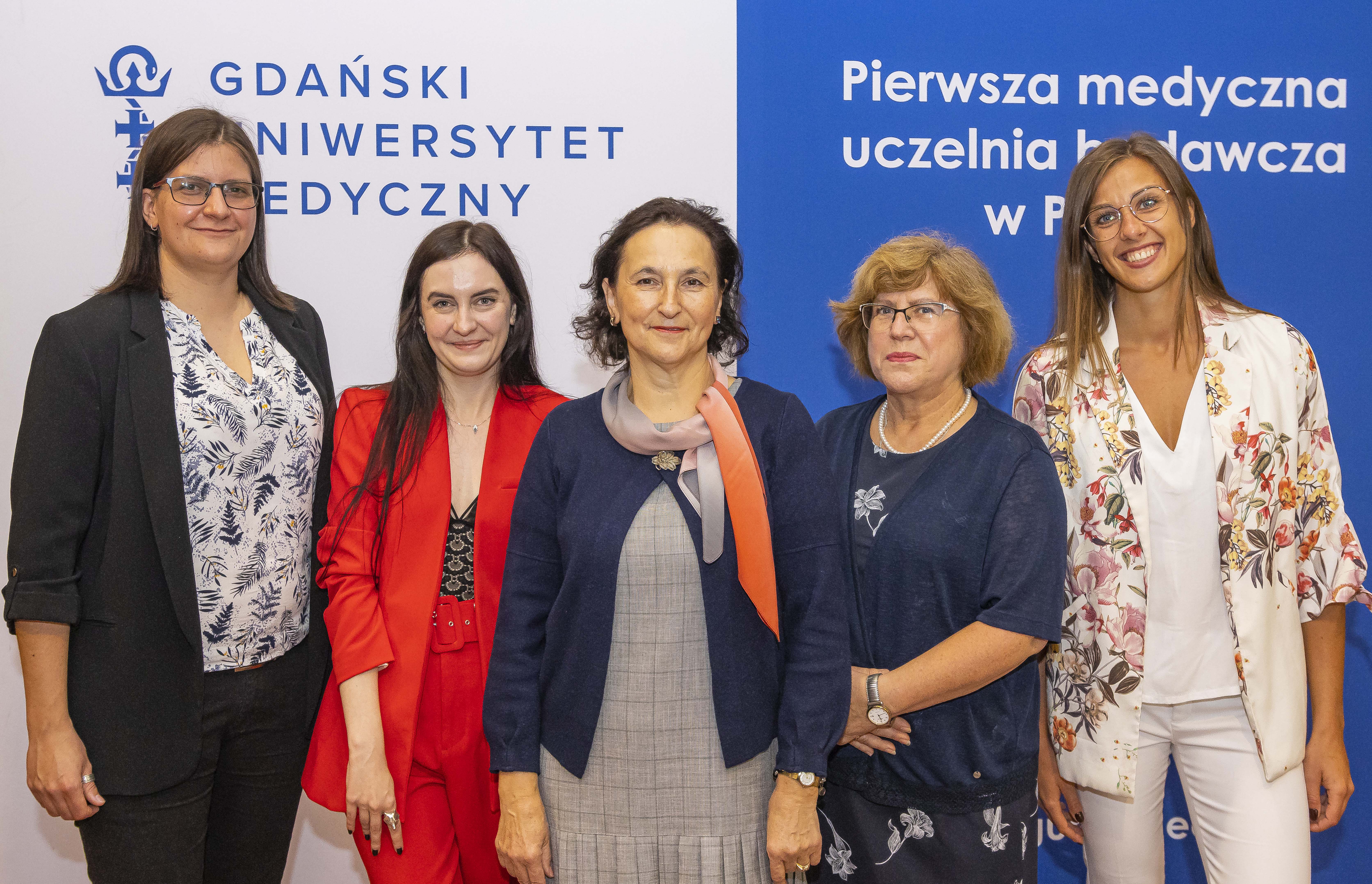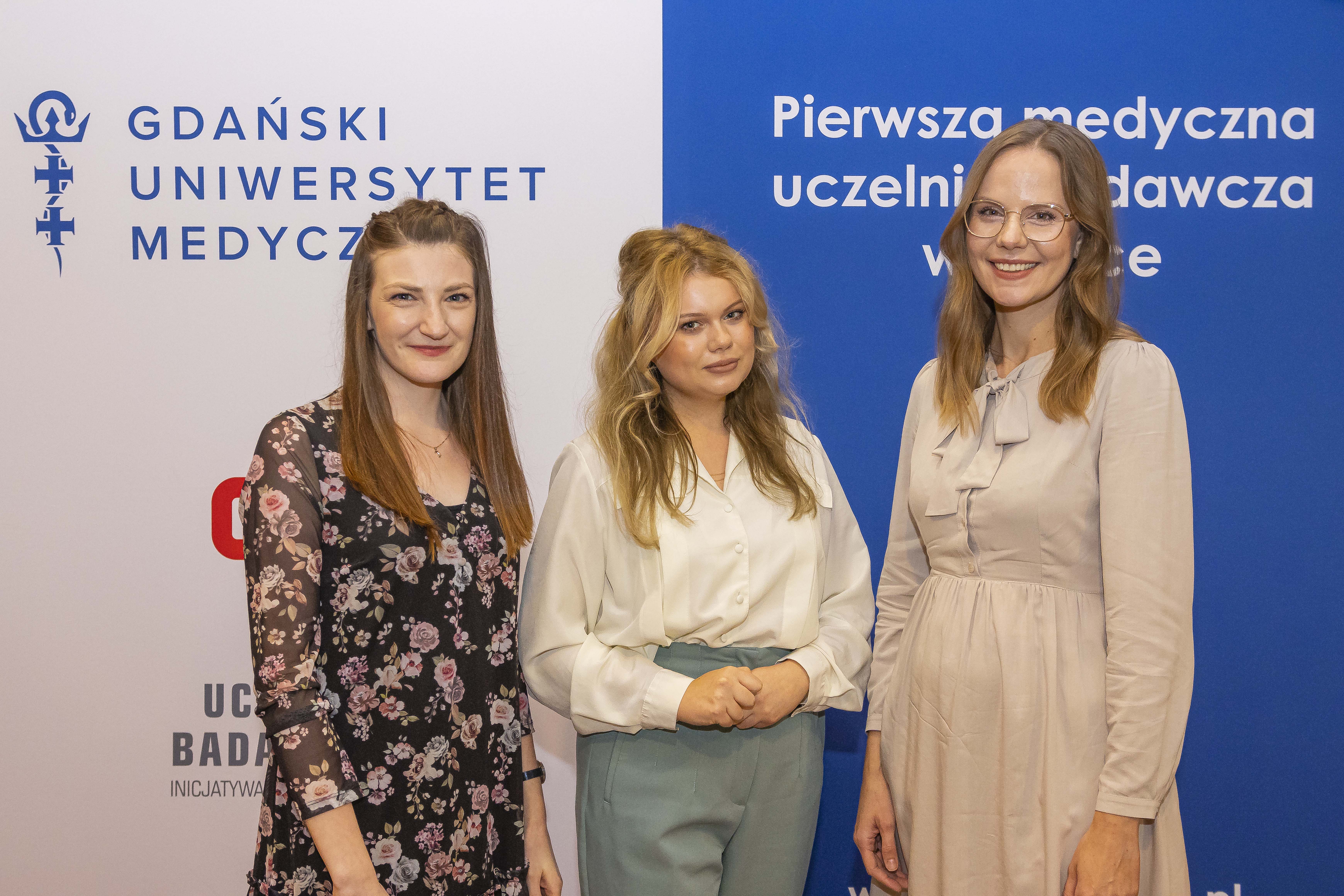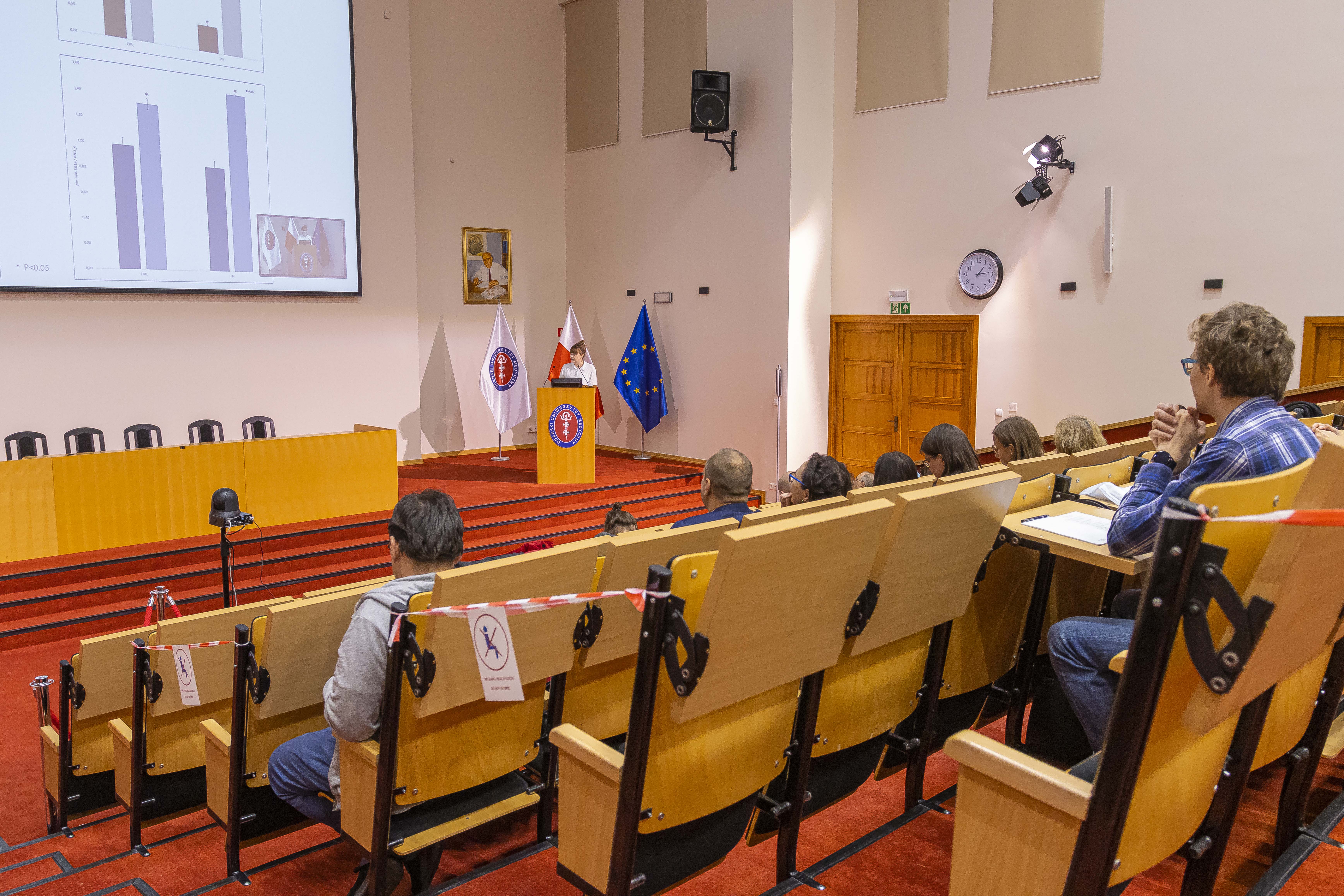What are the X Team scientists working on?
Around 100 participants took part in the X Team’s workshops titled the Molecular and biochemical methods for study mechanisms of civilization diseases, which is an integral part of Priority Research Area 3 (Biochemistry, Genetics and Molecular Biology) within the Excellence Initiative – Research University Program. The event took place on 22 September 2021 in a hybrid form – around 30 people met in the Prof. Olgierd Narkiewicz Auditorium Primum, and 70 listeners attended online via the Zoom platform.
The workshops under the patronage of the Rector of the MUG, Prof. Marcin Gruchała, and the honorary patronage of the Fahrenheit Universities, were intended for the scientists of the Medical University of Gdańsk, Gdańsk University of Technology and University of Gdańsk. The event was also attended by representatives of the University of Wrocław, Jagiellonian University in Kraków and of the Poznań University of Medical Sciences.
The meeting was opened by the leader of Priority Research Area No. 3, Prof. Ryszard Tomasz Smoleński. All the participants were then greeted by Prof. Tomasz Bączek, the Head of the Office for the “Excellence Initiative – Research University“ Program.
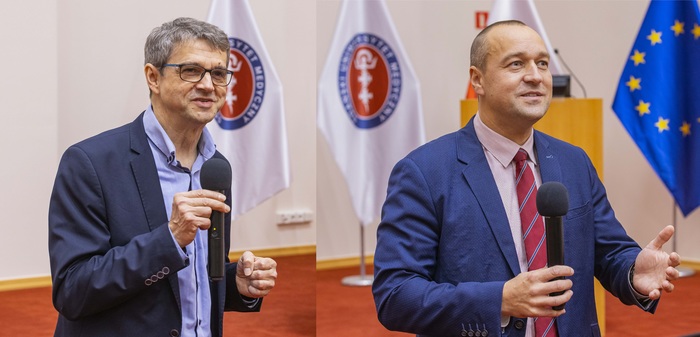
Prof. R. T. Smoleński and Prof. T. Bączek
The workshops were divided into three topic blocks. The first part, supervised by Prof. Rafał Bartoszewski, comprised issues pertaining to the importance of stress-exposed cells fate decision for human pathology, to hypoxia (the transition from HIF1 to HIF2), and to IRE1 and dependent miRNA as the determining factors for the cell’s fate during unfolded protein response (UPR). In addition to the team coordinator, Maciej Jaśkiewicz Ph.D. and Magdalena Gebert M.Sc. of the Department and Division of Biology and Pharmaceutical Botany also presented the outcomes of their work.
In the second part, the team of the Division of Immunobiology and Environmental Microbiology chaired by Prof. Katarzyna Zorena and consisting of Klaudia Antoniak M.Sc., Monika Kurpas Ph.D. and Marta Jaskulak Ph.D. had a chance to present their activity. Issues pertaining to yeast-like bacteria and fungi in the environment and to the manual lymphatic drainage as one of the forms of lymphatic system therapy related to obesity were raised. Also discussed were the whole genome sequencing (WGS) as an all-purpose tool in microbiological research and the threats related to sludge utilisation in agriculture.
The third block was devoted to the work of the team of Barbara Kutryb-Zając, Associate Professor, who, together with Gabriela Harasim M.Sc. and Marika Frańczak M.Sc. (the Department and Division of Biochemistry), introduced the participants of the meeting into details pertaining to the search for new markers of the functions of the vascular endothelium and to the research into the mechanisms of endothelium damage and dysfunction in experimental models. Also discussed was the role of isoenzymes of adenosyne deaminase in the course of breast cancer and of the targeted metabolomic and proteomic analysis in the identification of the of vascular endothelium disorders.
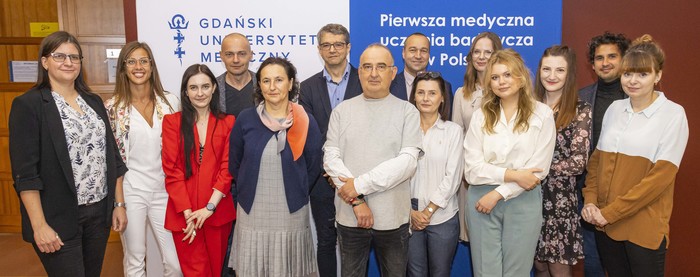
workshop participants
During the event, the scientists also had a chance to become familiar with support options in the dissemination of research conducted by them, which were discussed by Agnieszka Anielska Ph.D. of the MUG Promotion Unit.
Each speech was summarised in a discussion, during which the participants were able to ask questions. This fitted in with the workshop assumptions, which included becoming acquainted with the activity of X teams, as well as sharing the observations concerning the research being conducted.
Photo: Paweł Sudara/MUG


